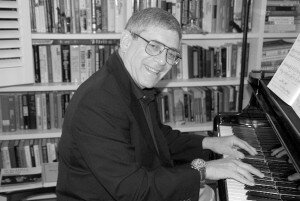My earliest memory of World War II is riding my bike, shouting, “The war is over!” At six-years-old, I wasn’t sure what war meant. And of course, I had no idea how wars began, or ended.
Later, I’d meet many people who’d fought in the conflict. I worked with an American whose B-29 airplane (Bock’s Car) dropped the bomb on Nagasaki and a Japanese who’d served as a Naval Air Cadet. There were other coincidences, some strange, and one that was most extraordinary. It happened in 1985.
My wife and I were driving to the Mark Hopkins Hotel in San Francisco, to meet my new British bank clients for dinner.
“Who are these people?” Ellen asked.
“It’s a three-man team,” I said. “The leader’s a guy named Lawry Lawrence. He’s the bank’s chief information officer, a brigadier in the British Army.”
“Do they call him Brigadier?”
“Most of the time it’s just Lawry.”
I looked at my wife. Born in Central Europe, she’d had a terrible time during the war. Still, she enjoyed meeting international customers. My employer encouraged us to bring our spouses to business dinners, and Ellen always related well to the clients.
We met the Brits at the Top of the Mark. The bar and restaurant offered spectacular views of San Francisco and the Golden Gate bridge.
After introductions Ellen sat next to the brigadier. We ordered drinks and the conversation turned to Lawry’s war-time experiences.
“Were you in combat?” Ellen asked.
Lawry nodded. “I was a sergeant, in Montgomery’s Eleventh Armored Division. In ’44 we fought in Holland. In ’45, we occupied Northern Germany, near Hamburg.”
“Really?” Ellen gasped. Her wine glass wobbled when she placed it on the table. “I was in the Bergen-Belsen Concentration Camp. The British Army liberated me.”
The background music and the babble at the other tables seemed to fade. The conversations between Lawrence’s men stopped in mid-sentence. All eyes turned to Ellen.
I wondered if she would tell her war story. She rarely spoke about the camps. The tale was grim; I cringed whenever I heard it.
“I was born in Poland,” she continued. “The Nazis deported me, my mother and sister, to Ravensbrücke Concentration Camp in 1944. They shipped us to Bergen-Belsen in February 1945. The camp was liberated on April 15th. A British soldier found me on a pile of bodies. I was just seven, barely alive.”
Lawrence’s eyes watered. “It was my division. My jeep was one of the first to enter the camp…”
“Oh my God,” whispered Ellen.
Lawrence nodded. “The Germans had offered a truce because of a typhus epidemic. There were tens of thousands of inmates, hundreds died for days afterward. We established dispensaries in some of the barracks and hunted for survivors.”
“I was one of them,” said Ellen. “I had typhus, too. My memory isn’t clear, but I absolutely remember the bodies. My mother broke down when I was brought to a dispensary. She thought I was dead. She never fully recovered.”
Lawrence put his arm around Ellen and hugged her. I gazed at the man who’d helped save my wife. Was he actually the one? The brigadier’s men gulped their drinks. After an awkward moment, the conversation shifted to more conventional topics. I noticed the background chatter again.
Driving home, tears streamed down Ellen’s face.
“Was it too much?” I asked, “…to be reminded?”
She shook her head. “These are tears of joy. It feels like I’ve been liberated all over again.”
I smiled. Perhaps Ellen’s war was really over.
David Brandin, a retired computer scientist, has published several novels and collections of short stories. Earlier, he co-authored a column on computers in California Business and The Technology War, a trade book. David is a member of SLO NightWriters, for writers of all genres and levels of skill. Find us online at slonightwriters.org


